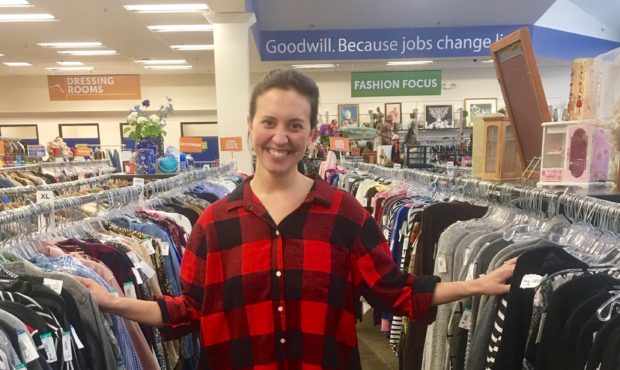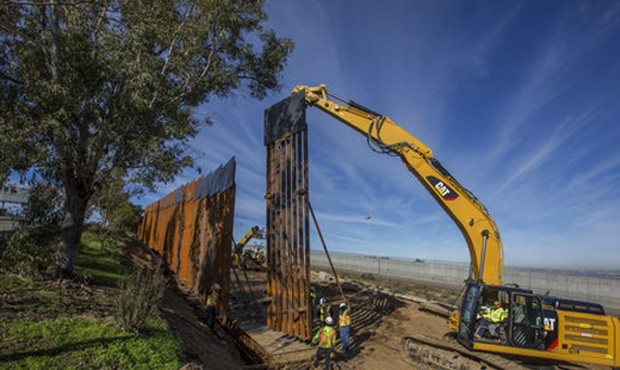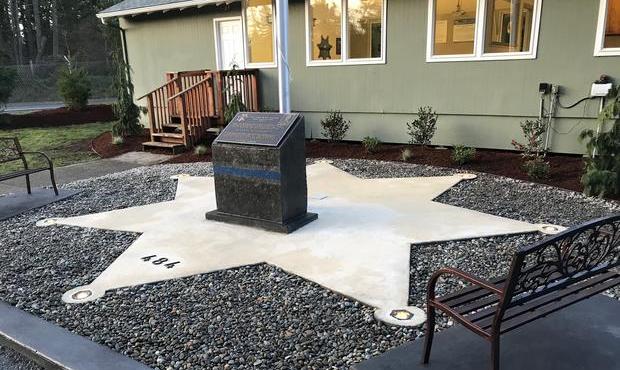From football to state trooper: Inner city kid’s path to giving back
Nov 1, 2017, 4:13 PM | Updated: Nov 2, 2017, 9:49 am

Coach Nolan Washington. (Hanna Scott, KIRO Radio)
(Hanna Scott, KIRO Radio)
Nolan Washington grew up in Seattle’s Rainier Beach neighborhood and began playing football at the age of 7, eventually earning a spot on the team at Kennedy High School.
He paid for tuition at the private high school by sweeping floors at the school, among other janitorial duties.
He was a star player at Kennedy, where he was an All-State defensive back for the Lancers, while also playing quarterback and kick and punt return. All that earned him a slew of offers for a full ride at several top colleges, including PAC-12 schools.
In the end, Washington decided to keep things close to home and chose to go to Washington State University. By the time he finished his senior year the Cougs had made it to their first bowl game in 10 years.
He planned to play in the NFL and use the money he made to help his parents. He also wanted to give back to the community.
But injuries suffered during college football killed the NFL dream. Doctors told Washington he needed to retire.
Crushed, Washington took a trip to California where his girlfriend lived and ended up staying. As he tells it, he did some much needed growing up.
All this time the NFL was still knocking, with Washington getting tempting calls from teams and agents asking him to come in for a workout. It was tough to turn down, but he knew his playing days were over.
Washington received calls from college programs interested in hiring him onto the coaching staff as well. When he received a call about returning to his alma mater, Kennedy, to join the high school football coaching staff. He accepted.
During all of this, Washington was paying attention to the national climate between police and communities of color, specifically police shootings and the protests that came with them and the divide and distrust that between the black community and police. Again looking to give back, Washington, whose father and grandfather were in law enforcement, decided he could help close that divide, and the best way to do that was to become a cop. So, while coaching at Kennedy he tested for Washington State Patrol and was accepted to the academy. He left his coaching job at Kennedy, went through the academy, and was quickly out on the road as a trooper in 2016.
During all of this, he got a call from his former high school coach and mentor Paul Arnold to join the coaching staff at Cleveland High School. Washington accepted because he wanted to keep football in his life and, and here’s that recurring theme again, he wanted to give back to the community he grew up in.
It’s Washington’s first season coaching the Cleveland Eagles as the co-defensive coordinator and coach of the defensive backs. He says his main goal is helping the kids and families in this south Seattle neighborhood become the “best football players they can be,” but more importantly using his life experiences and things he’s learned to help them become “better men off the field.”
These are inner-city kids, says Washington, many who come from single-parent homes and don’t have a lot of options. Football gives them an alternative to making negative choices, he says. Washington believes serving and giving back should be a top priority for everyone and says he loves being able to give back in the south Seattle community, work with these kids, teach them about commitment, being a team player and how to dream and aim high.
Football and the State Patrol keep Washington busy, with patrol shifts from 5 a.m. to 3 p.m. and daily football practice from 4 p.m. to 6:30 or 7 p.m., and on game days that can go as late as 10 p.m. Washington can often be seen in his uniform on the football field because he doesn’t even have enough time to change before heading to practice or the game.
Washington’s State Patrol Sergeant even gets in on the action, going to Costco with Washington every game day to buy the pre-game meal for the players.
Part of Washington’s beat as a trooper also includes his old neighborhood.
His goal as a state trooper: help close the divide between police and the black community one contact at a time.
Washington saw some of the problems first hand as a kid in Rainier Beach when he and two high school teammates were pulled over for speeding and, he says, “treated bad.” Five cop cars showed up, he says, and officers searched the car “fishing for drugs or something,” pulled one of them out of the car and searched him “trying to pin stuff on them.” Washington and his friends, who were all laser-focused on making it to the NFL, were shocked to be searched and treated the way they were, he says, and that it wasn’t right.
Washington is quick to point out there are a lot of good cops out there too, officers who just want to serve and treat people right, and do good for the community, “we just need to shine more of a light” on the good ones who are out there.
Washington also sees the tension between police and communities of color first hand as a trooper, especially when he pulls over “black or brown” people.
On one stop, Washington recalls, he pulled over a black driver to let them know their taillight was out and as he approached the car everyone inside had their hands up and wouldn’t put them down. They were “legit scared,” Washington says, and he had to convince them they were okay. Others tell him “thank God you’re black.” It’s normal to be nervous about getting a ticket when you get pulled over, Washington says, but you shouldn’t be scared you’re going to be killed because of the color of your skin, “that’s crazy.”
Unfortunately, Washington says, that’s the climate we’re in these days, something he’s trying to change with each and every stop he makes.
When he stops a person of color who is clearly scared of police, Washington engages with them, asks them why they’re scared and to share their story so he can talk about it with them.
Respect is also key to easing tensions.
Washington says it’s vital for all cops to treat people they stop with respect, with a calm tone and not like they’re better than them just because they have a badge. This job isn’t my identity, Washington says, “my identity is service to people, my identity is helping people, my identity is helping kids.” Washington says it’s also important for anyone being pulled over to treat officers with respect.
Washington strives to end every stop with a handshake, even if he’s given someone a ticket, and says the only way to do that is treat people with respect and not talk down to them.
Washington hopes those type of positive interactions will spread through the community by word of mouth and help change negative views of police into positive opinions, one stop at a time.













